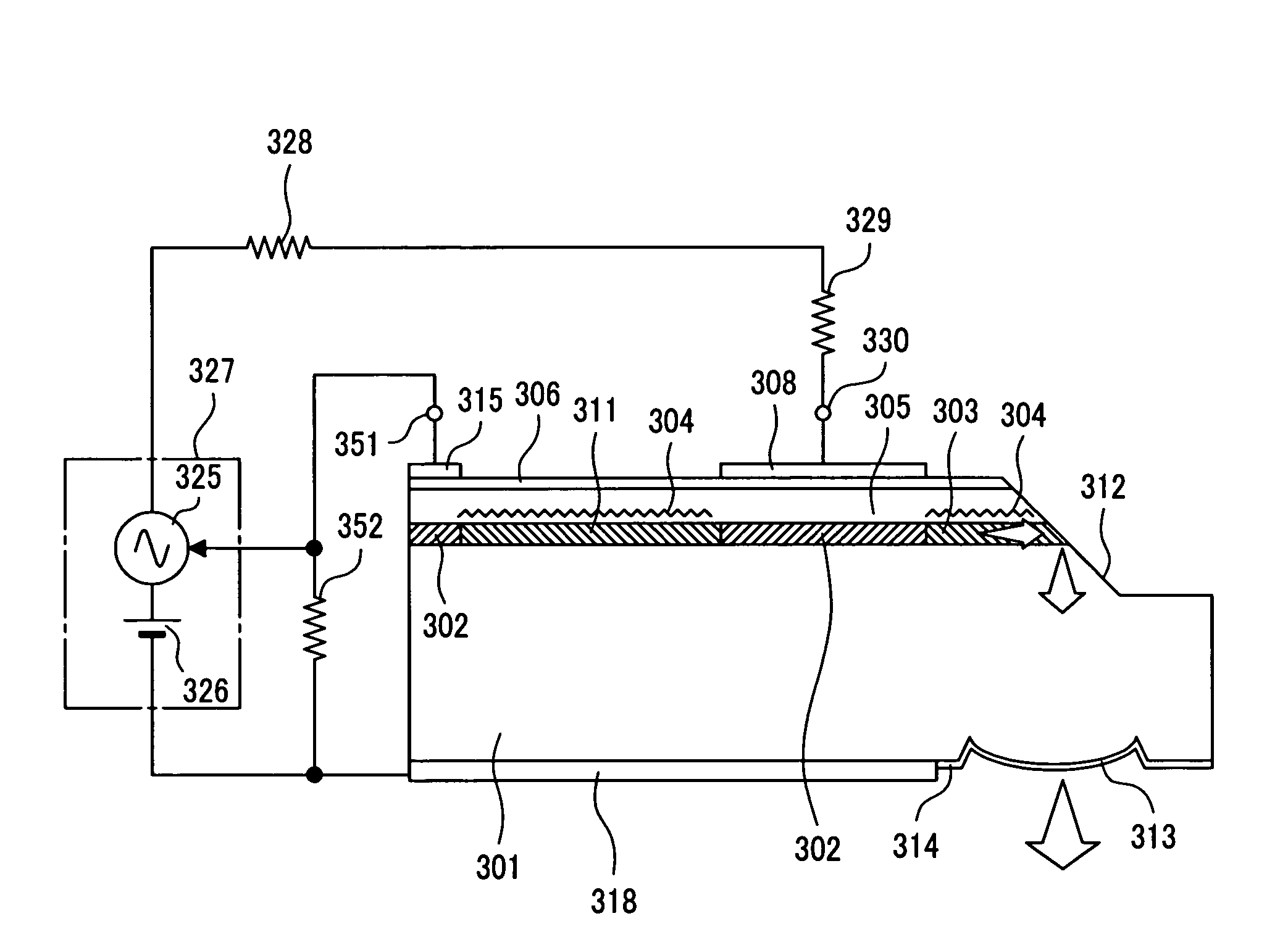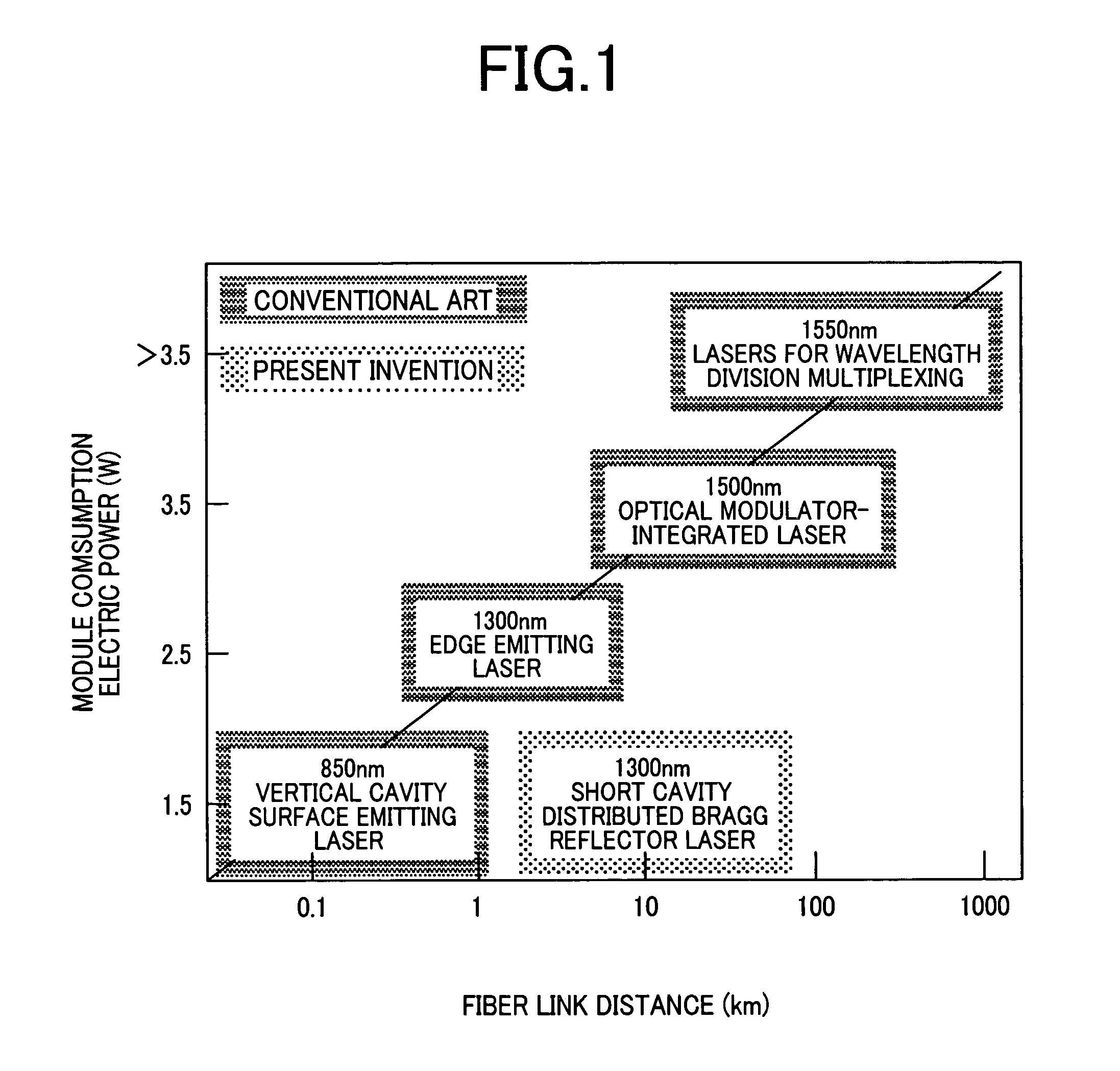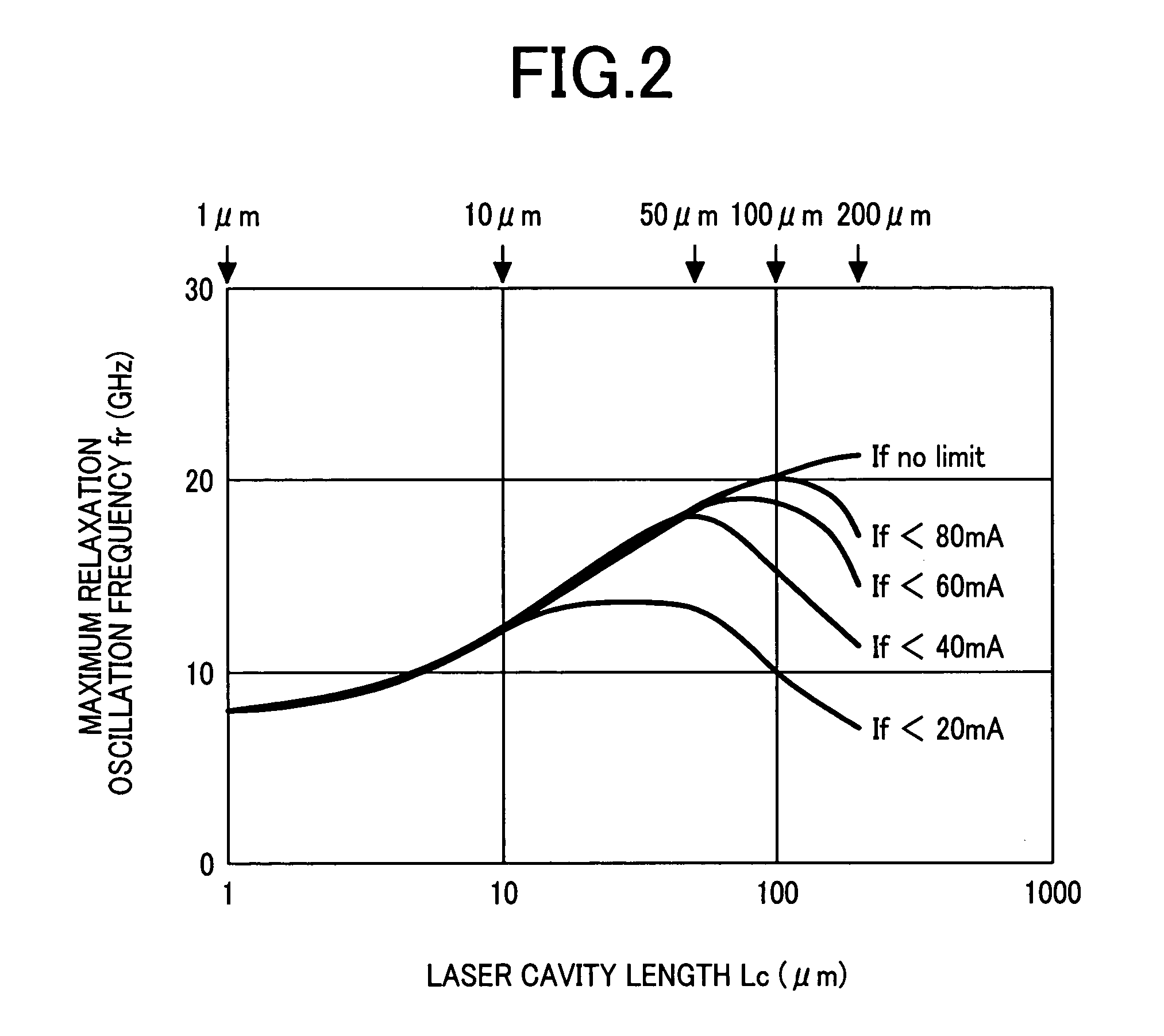Distributed bragg reflector type directly modulated laser and distributed feed back type directly modulated laser
a direct modulation and laser technology, applied in semiconductor lasers, optical resonators, laser details, etc., can solve the problems of increasing power consumption and limited high-speed interface system throughput, and achieve excellent heat radiation properties, low current operation, and excellent economic efficiency.
- Summary
- Abstract
- Description
- Claims
- Application Information
AI Technical Summary
Benefits of technology
Problems solved by technology
Method used
Image
Examples
embodiment 2
[0042]FIG. 8 illustrates a device structure of a 1300-nm-band vertical cavity surface emission type InGaAlAs system short cavity laser according to Embodiment 2 of the present invention. FIG. 8 also illustrates an example of a drive circuit for directly modulating this laser. A basic structure of this laser is basically the same as that of the laser described in Embodiment 1 except for the following points. That is to say, the high reflective film 310 formed in the rear of the laser is replaced with a rear DBR layer 311, the compression strain MQW active layer 302 made of InGaAlAs is left in the rear of the rear DBR layer 311 in order to monitor an output from the device, and an output monitoring electrode 315 is formed at a position corresponding thereto. The device length including the DBR region length is set to the range of 150 to 700 μm similarly to the case of Embodiment 1. In Embodiment 2, in order to emit a laser oscillation beam downward of the substrate 301, a 45°-mirror 3...
embodiment 3
[0047]FIG. 10 is a cross-sectional view of a 1300-nm-band vertical cavity surface emitting laser having a GaInNAs system short cavity DBR structure according to Embodiment 3 of the present invention.
[0048]The laser device is manufactured in accordance with the following procedure. Firstly, an n-type InGaP buffer layer 502, and a GaInNAs-MQW active layer 503 having an emission wavelength of 1300 nm are grown in this order on an n-type GaAs substrate 501 by utilizing a molecular beam epitaxy method. Next, after the GaInNAs-MQW layer 503 has been partially etched away by using an insulator stripe mask, a distributed Bragg reflective (DBR) layer 504 which has a thickness of 300 nm and which is made of bulk GaAs, and a back distributed Bragg reflective (DBR) layer 510 made of GaAs are integrated in a butt-joint form by utilizing the known method. Subsequently, a uniform-pitch grating 505 having a pitch of about 199 nm is formed in a marking manner on the GaAs-DBR layer 504 and the GaAs-b...
embodiment 4
[0050]FIG. 11 is a cross sectional view of a 1300-nm-band vertical cavity surface emitting laser having a GaInNAs system short cavity distributed feedback (DFB) structure according to Embodiment 4 of the present invention. In the figure, reference numeral 601 designates an n-type GaAs substrate; reference numeral 602 designates an n-type InGaP buffer layer; reference numeral 603 designates a GaInNAs-MQW active layer; reference numeral 604 designates a diffraction grating; reference numeral 604a designates a λ / 4 phase shift structure; reference numeral 605 designates a p-type InGaP cladding layer; reference numeral 606 designates a p+-type GaAs contact layer; reference numeral 608 designates a small electrode pad; reference numeral 609, a GaAs waveguide; reference numeral 610, a 45° C.-mirror; reference numeral 611, a Fresnel lens; reference numeral 612, a non-reflective coating; and 613, an output monitor. At that, a back electrode 618 is provided on the other surface of the n-type ...
PUM
 Login to View More
Login to View More Abstract
Description
Claims
Application Information
 Login to View More
Login to View More - R&D
- Intellectual Property
- Life Sciences
- Materials
- Tech Scout
- Unparalleled Data Quality
- Higher Quality Content
- 60% Fewer Hallucinations
Browse by: Latest US Patents, China's latest patents, Technical Efficacy Thesaurus, Application Domain, Technology Topic, Popular Technical Reports.
© 2025 PatSnap. All rights reserved.Legal|Privacy policy|Modern Slavery Act Transparency Statement|Sitemap|About US| Contact US: help@patsnap.com



